

Ph.D (Research) Entrance Exams: Life Science – Previous Year Question Papers (Download PDF)
Ph.d. entrance exam question papers.
The following are the direct links to Previous Year Question Papers of Ph.D. Entrance Tests (Examinations) conducted by State and Central Universities, Research Institutions and Various State, National and International Organizations. Question Papers from all the disciplines of Biological / Life Science such as Botany, Zoology, Agriculture, Biotechnology, Biochemistry, Microbiology, Virology, Environmental Sciences, Ecology, Molecular Biology, Genetics etc. are covered in this page. Students can go through each of the question paper or they can DOWNLOAD the question paper as PDF files by clicking on the Download link given below the preview.
RESEARCH METHODOLOGY
@. Research Methodology & Biostatistics Ph.D. Entrance Test (1/3)
@. Research Methodology & Biostatistics Ph.D. Entrance Test (2/3)
@. Research Methodology & Biostatistics Ph.D. Entrance Test (3/3)
@. Research Methodology Ph.D. Entrance (Tamil Nadu University) July 2013
@. Research Methodology Ph.D. Entrance (Tamil Nadu University) January 2014
@. Research Methodology Ph.D. Entrance (Tamil Nadu University) July 2014
@. Research Methodology Ph.D. Entrance (Tamil Nadu University) January 2015
@. Research Methodology Ph.D. Entrance (Tamil Nadu University) July 2015
@. Research Methodology Ph.D. Entrance (Tamil Nadu University) January 2016
@. Research Methodology Ph.D. Entrance (Tamil Nadu University) July 2016
@. Research Methodology Ph.D. Entrance (Tamil Nadu University) January 2017
@. Research Methodology Ph.D. Entrance (Tamil Nadu University) July 2017
@. Research Methodology Ph.D. Entrance (Tamil Nadu University) January 2018
@. Research Methodology Ph.D Entrance (Ganpat University) 2017
@. Research Methodology Ph.D Entrance (Ganpat University) 2017 B
LIFE SCIENCES
@. Life Sciences M.Phil. / Ph.D Entrance Test 2012 (JNU)
@. Life Sciences M.Phil. / Ph.D Entrance Test 2013 (JNU)
@. Life Sciences M.Phil. / Ph.D Entrance Test 2014 (JNU)
BIOTECHNOLOGY
@. Biotechnology Ph.D Entrance Test 2009 (Kerala University)
@. Biotechnology Ph.D Entrance Test 2013 (Kerala University)
@. Biotechnology Ph.D Entrance Test 2015 (Kerala University)
BIOCHEMISTRY
@. Biochemistry Ph.D Entrance Test 2009 (Kerala University)
@. Biochemistry Ph.D Entrance Test 2013 (Kerala University)
@. Biochemistry Ph.D Entrance Test 2015 (Kerala University)
BIOINFORMATICS & COMPUTATIONAL BIOLOGY
@. Computational Biology & Bioinformatics Ph.D 2015 (Kerala University)
@. Botany Ph.D Entrance Test 2009 (Kerala University)
@. Botany Ph.D Entrance Test 2013 (Kerala University)
@. Zoology Ph.D Entrance Test 2009 (Kerala University)
@. Zoology Ph.D Entrance Test 2013 (Kerala University)
@. Zoology Ph.D Entrance Test 2015 (Kerala University)
ENVIRONMENTAL SCIENCE
@. Environmental Science Ph.D Entrance Test 2009 (Kerala University)
@. Environmental Science Ph.D Entrance Test 2015 (Kerala University)
AQUATIC BIOLOGY AND FISHERIES
@. Aquatic Biology and Fisheries Ph.D Entrance Test 2009 (Kerala University)
@. Aquatic Biology and Fisheries Ph.D Entrance Test 2013 (Kerala University)
Browse more in Easy Biology Class…
Lecture Notes Biology PPTs Video Tutorials Biology MCQ Question Bank Difference between Practical Aids Mock Tests (Online) Biology Exams
Get our Updates on QUESTION BANK in your E-mail Inbox We will not spam your account… Enter your e-mail address Don’t forget to Activate your Subscription…. Please See Your E-Mail…
You may also like…
@. Lecture Notes
@. Video Tutorials
@. Biology MCQ
@. Question Bank
@. Difference between topics…
@. Practical Aids
Please Share for your Students, Colleagues, Friends and Relatives…
No related posts.
Privacy Overview
Get science-backed answers as you write with Paperpal's Research feature
PhD Qualifying Exam: Tips For Success

Embarking on a PhD program is a significant milestone in your academic journey, and the PhD qualifying exam determines your progression in this journey. Despite its name, this exam takes place after you’ve been accepted and pursuing a PhD program. This might come as a surprise, but it’s a strategic move that benefits both you and the academic institution.
Table of Contents
- What is a PhD Qualifying Exam?
- Format of a PhD Qualifying Exam
Tips for Preparing for a PhD Qualifying Exam
Common pitfalls to avoid, what is a phd qualifying exam.
The PhD qualifying exam ensures that students have a good grasp of their subject and the necessary knowledge in their chosen research area to move ahead with their PhD in a timely manner. It is typically taken in the second year of the PhD program, and students are expected to finish most of their specific courses before attempting the exam.
Successfully passing the exam signifies that you’re prepared to transition to the independent research phase of your graduate training. In simpler terms, the PhD qualifying exam is a checkpoint that verifies if you’ve completed the initial phase of the program and are now ready to be recommended for the PhD candidacy. It’s often considered one of the most challenging periods for doctoral students. 1,2
Format of a PhD Qualifying Exam
The PhD qualifying exam typically consists of two sections, written and oral, which demand versatile skills. Here’s a detailed overview of both the sections:
- Written Exam
The written phase of the PhD qualifying exam is designed to test the depth of the candidate’s knowledge within their chosen field and assess their analytical abilities. Answering these written questions requires more than just remembering and writing down facts and details. It involves having a strong grasp of the subject and the skill to express complex ideas clearly and coherently.
- Oral Exam
The oral phase of the PhD qualifying exam introduces a different dimension to the evaluation process. In this phase, candidates must explain their written answers to the examination committee. The oral part is an opportunity for candidates to share their views, clarify points, and show a deep understanding of their research area in a scholarly discussion with the exam committee. 2,3
Being well-prepared for the exam can increase your chances of success and make the process less stressful. Here are a feuw preparation tips for a PhD qualification exam:
- Understand the Exam Format: Learn about the exam format, what is expected, and how the exam is structured, including written and oral parts. Be aware of the specific requirements set by the committee.
- Develop a Strategic Study Plan : Break your study sessions into smaller parts, focusing on understanding key concepts, theories, and methods. Make sure to set aside specific time for both written and oral preparation.
- Review past exam papers: Practice with old test papers to understand the types of questions asked before so you know what to expect. This will help you improve your ability to answer different kinds of questions and boost your confidence for the actual exam.
- Remember, you’re not alone in this journey. Your advisor is a valuable resource who can help you structure your study plan, refine your research focus, and understand the examiners’ expectations. Regular communication with your advisor is essential, and their support can significantly contribute to your success in the PhD qualifying exam.
- Stay Motivated and Organized: Set realistic goals, celebrate small achievements, and visualize the successful completion of your exam. Keep your study materials organized, making it easier to review and revise. 2,3,4
- Procrastination: Start your preparation early to avoid last-minute cramming, which can lead to stress and inadequate preparation.
- Isolation: Engage with fellow candidates, share experiences, and form study groups. Collaborative learning can enhance your understanding and offer diverse perspectives.
- Overemphasis on Memorization: While factual knowledge is essential, focus on understanding and critically analyzing concepts rather than rote memorization.
- Ignoring Feedback: Utilize feedback from your practice sessions and mock exams. Address weaknesses and refine your responses accordingly.
Facing the PhD qualifying exam might feel challenging on your journey to a PhD, but careful preparation and a smart approach can lead to success. Understand the exam structure, create a strong study plan, stay motivated, and avoid common mistakes. Remember, the exam isn’t just about testing your knowledge; it’s an opportunity to show your ability to contribute meaningfully to your field of study. 2,3,4
References:
- Ph.D. Qualifying Examination – Berkeley
- Qualifying Examination Policies and Guidelines – Albert Einstein College of Medicine
- What is a PhD Test / PhD qualifying exam? – Academia Insider
- PhD Qualifying Exam: 5 Steps to Success – Beyond PhD Coaching
Paperpal is a comprehensive AI writing toolkit that helps students and researchers achieve 2x the writing in half the time. It leverages 21+ years of STM experience and insights from millions of research articles to provide in-depth academic writing, language editing, and submission readiness support to help you write better, faster.
Get accurate academic translations, rewriting support, grammar checks, vocabulary suggestions, and generative AI assistance that delivers human precision at machine speed. Try for free or upgrade to Paperpal Prime starting at US$19 a month to access premium features, including consistency, plagiarism, and 30+ submission readiness checks to help you succeed.
Experience the future of academic writing – Sign up to Paperpal and start writing for free!
Related Reads:
- 6 Tips for Post-Doc Researchers to Take Their Career to the Next Level
- What is a Thesis Statement and How to Write It (with Examples)
- Ethical Research Practices For Research with Human Subjects
- 8 Most Effective Ways to Increase Motivation for Thesis Writing
Why Traditional Editorial Process Needs An Upgrade?
What is academic writing: tips for students, you may also like, ai in education: it’s time to change the..., quillbot review: features, pricing, and free alternatives, what is an academic paper types and elements , 9 steps to publish a research paper, what are the different types of research papers, how to make translating academic papers less challenging, self-plagiarism in research: what it is and how..., 6 tips for post-doc researchers to take their..., presenting research data effectively through tables and figures, ethics in science: importance, principles & guidelines .
[ skip to content ]
Participants gather for a group photo at the ODU Graduate Program in International Studies’ Annual Graduate Research Conference. College of Arts and Letters
Student Guide: The Ph.D. Comprehensive Examination
Introduction.
The comprehensive examination is a critical part of the GPIS PhD program. You should not view it simply as a bureaucratic hurdle to pass over on your way to the dissertation. Instead, before embarking on narrowly focused dissertation work, the comprehensive examination establishes that you have the broad familiarity and expertise with the field that is the mark of a doctoral education. It is the checkpoint that confirms that you are ready to pass from being a student to a scholar. The process of preparing for the comprehensive exam should help you organize and reflect on the variety of things you have learned over the past few years. While to this point, each of your seminars has been a distinct learning experience, you now can think about how your interdisciplinary work in international studies fits together. Preparation for the comprehensive exam should help you become better able to integrate and utilize the knowledge you have gained in your graduate study. It is also critically important for embarking on the dissertation. The best dissertations are effectively connected to the central questions and literature of the field. Unless you have developed an integrated overview of the field you will not have the necessary foundation for dissertation work.
The Comprehensive Character of the PhD Examination
It is important to note that the comprehensive PhD examination is not simply a test of your cumulative knowledge of seminar materials. It is, rather, a test of your preparation to work as an independent scholar at the highest level. By now you should be functioning like a scholar, and not just like a student. You should be aware of the major journals in your field and should be paying attention to them. You should know what the most important books, articles, and debates are regardless of whether they were used in your classes. It may have been a few years since you took IR theory, but it is unlikely that the scholars who work in that area have stopped pushing the field forward to wait for you to get through the comprehensive exams.
The Written Comprehensive Examination Process
The written comprehensive exams are usually scheduled for a Friday and Monday the weekend before the start of the new semester. You will do your major field on one day and your minor field on the other. We will try to schedule your major field for Friday and your minor field for Monday, but the order will be determined by the scheduling needs of the full set of students taking the written comprehensives on a given day. You will have eight hours to complete each part of the exam. The exam is closed book and no notes or other aids of any kind are allowed. For each of your fields you will be given five questions from which you will choose two to answer.
The Written Exam Grading
The exam will be graded by the appointed Doctoral Candidacy Examination Committee. The committee will usually, but not always, include the Committee Chair, and directors of the relevant tracks. It will usually take about two weeks to get the written exams graded.
Passing the Written Comprehensive Exam
Different examiners may read the exams in different ways, and it is the student's responsibility to write answers that are generally accessible and appealing across the variety of GPIS faculty. Most readers will be looking for a clear and direct answer to the question, evidence of familiarity and facility with the important literature, and an ability to integrate theory and empirical cases.
To pass the comprehensive exam, students must not receive more than one failing evaluation from a committee member.
Failing the Written Comprehensive Exam
Our goal and expectations are that every student will pass the comprehensive examination. The exam is not designed to be a barrier. It is meant to be a straightforward assessment of the student's command of their declared fields and their preparation to move on to the challenges of writing the dissertation. Nonetheless, and precisely because the exam is conceptualized as an assessment of this preparedness to move on, it plays a very important role in your doctoral education. Students who do not demonstrate an effective grasp of the relevant literature and empirics or who do not effectively and explicitly answer the questions as asked will not pass.
Students who do not pass the written portion of the exam on the first attempt will have to retake the exam in a subsequent semester. Failure on the second attempt will prevent the student from going on to write a dissertation. At the discretion of the examination committee, the failing student may be awarded the MA degree if the performance and coursework so merit, and if they do not already have a GPIS MA.
The Oral Comprehensive Examination process
Doctoral candidates are expected to be able to communicate effectively and knowledgeably both in writing and orally. Thus, the comprehensive examinations have both a written and an oral component.
The oral portion of the comprehensive examination will take place about three weeks after the written. Three to five faculty members will administer the examination. The examiners will usually, but not necessarily, include the Director or Associate Director of GPIS and the track coordinators from the student's major and minor fields. The examination will last about one hour. Each examiner will have a chance to ask questions, but the format will often shift between relatively structured questioning and a more free-flowing discussion.
The discussion will center on the student's answers for the written exam (students may use their written exam). The scope of the exam is not, however, limited to that material. The examiners will be looking to fill in any perceived gaps in the written work, and to assess the student's facility more generally with the literature and empirical material.
Passing the Oral Comprehensive Exam
Passing the oral comprehensive exam is a matter of convincing the committee members that you have an appropriate mastery of the central material of the field and are prepared to go on to focused and independent work on a dissertation. To pass, you must not receive more than one negative vote from a member of the examining committee.
Failing the Oral Comprehensive Exam
Students who do not pass the oral exam will be asked to return in one month for a second oral exam. Students who do not pass on the second attempt will not be allowed to continue for the PhD.
Tips for Preparing for the PhD Comprehensive Exam
The most important preparation for the PhD comprehensive examination is the GPIS coursework you have completed. Reviewing the notes and materials from your seminars and trying to organize it around some integrative themes is essential preparation. The following pages offer some further suggestions for effective preparation for the comprehensive examination, and for ensuring a strong examination performance.
1. Take appropriate classes
In consultation with your adviser and other faculty, be sure to select a variety of classes that will give you the broad background you need for the comprehensive exam. It is particularly important that you choose classes that will help you gain both a breadth of field knowledge, and a depth of knowledge in a few critical areas. The seminar papers you write should particularly help you develop depth in a few critical areas.
2. Keep effective class notes and reading notes
You should be thinking about preparation for the comprehensive exams from the beginning of your program. Keeping your seminar and reading notes in an organized manner will allow for more effective comprehensive exam review. You will particularly want to be careful about the material in the core classes.
You may find it useful to develop reading notes at different levels of depth. There may be a set of books and articles for which you will have 2-3 page summaries. There may be a second, larger, group for which you have paragraph length descriptions. Finally you should have a third very large group for which you have a sentence for each reading that gives you the central thrust of the argument.
3. Work on exam preparation in groups
Working with others can help you share the labor of summarizing and reviewing material. You can work with others on identifying the critical literature and on developing answers to hypothetical test questions.
4. Pay particular attention to the broad literature of international relations theory that will help you in answering a wide variety of questions
Many of the questions across the different tracks will benefit from an effective understanding of the broad currents and debates of international relations theory. One of the things a graduate education should help you do is to apply general theory to a variety of specific situations. Displaying that ability on the comprehensive exam is a good idea.
5. Identify some historical periods and important episodes and issues around which you will develop a particular expertise
Alas, no one can know everything about everything. You will see in this collection of sample questions that it is relatively rare for a question to demand knowledge of a particular event or historical period. Nonetheless, you will also see that you are often called upon to identify a critical historical period or event. You will be expected to evince in-depth knowledge of some issues or areas. Effective in-depth knowledge of a few critical issue areas or historical episodes can help you generate appropriate material for a wide variety of questions.
6. Identify some important literature with which you will be particularly familiar
You need to have a good feel for a very broad range of literature. For a lot of books and articles, remembering the author and the central thrust of their argument and evidence will serve you adequately for the comprehensives. But, just as it is essential that you have a greater depth of knowledge about a few historical episodes are critical issues, you will want to have a set of books and articles that you know extremely well. You should have an identified set of readings that you are confident you can apply to a reasonable range of questions and that you know very well and can talk about with some depth and sophistication.
7. Practice for the exam
Using the material in this booklet, you should write some practice exams. At the beginning you may want to take several hours and write an answer with open book resources. By the end you should be practicing with closed notes and a two-hour clock to simulate exam conditions. Such practice will not only help you think about how you will engage in the actual task of taking the exam, but will give you collection of sample answers that may be easily adapted to the real test questions. Just be careful that you don't mistakenly provide the answer to a similar old question and miss the slightly changed terms or requirements that are likely to show up in the real test.
The process of preparing practice exams is another area where working in groups can be extremely helpful. Having a study group can give you a larger stock of practice answers and will allow you to get feedback and to discuss the appropriate sources and arguments for a given question.
Tips for Writing an Effective Comprehensive Exam
1. Make sure you answer the questions explicitly and clearly.
The most common comprehensive exam mistake is to not explicitly and clearly answer the question. Read the question very carefully and make sure that you offer an explicit answer to the question. Do not rely on the readers to draw out implicit answers.
2. Make appropriate reference to the literature and relevant scholarly debates.
You will not, of course, be expected to provide detailed citations. But, you should demonstrate familiarity and facility with a range of the literature. You should be able to appropriately reference the scholars whose arguments are relevant to a particular issue. You may occasionally include the name of a book or article and the date of its publication.
3. Make appropriate use of theory and of empirical and historical knowledge.
If appropriately done, it is particularly effective to use theory to inform answers on history questions and history to inform answers on theory questions.
4. Write full answers that are structured with an introduction and conclusion.
As in all writing, structure and organization are important to effective communication. Just because it is a time-limited exam is no excuse for jumbled, incoherent writing. Take the time to think through and outline your argument and its structure before you write. As in all writing, signposting, headings, and clear explicit language can help communicate your ideas. Provide a clear introduction and conclusion that can help you summarize your central point and will reassure the readers that you have, in fact, explicitly answered the question.
5. Make an argument
As a scholar prepared to embark on independent thesis work, it is important that you demonstrate an ability to effectively articulate your own views. The comprehensive exam is not just about knowing the literature. It is also about demonstrating that you can think about international issues critically and come to your own conclusions. Avoid wishy-washy answers that simply describe some of the ideas extant in the field and then conclude that they are all correct. Take a stand and defend it with appropriate theoretical, analytical, and empirical material.
6. Make choices
You will notice that most of the questions are a lot bigger than can be fully answered in the two-hours you will have on average during the written exam. You have to make choices on how you will answer so that you can display your breadth and depth of knowledge while satisfying the committee that you have effectively addressed the question. It usually helps if you can be explicit about how you are managing the question ("While there are, of course, idiosyncratic elements in the complex relationship of each President to his national security team, I will focus in this short essay on the difficult relationship between Jimmy Carter, Zbigniew Brzezinski and Cyrus Vance because it effectively illuminates the problems every foreign policy team must face"). It is rarely a good strategy to try to present a broad and superficial survey of too many things ("In this essay I will discuss the relationship of each Post-WWII American president with his respective Secretaries of State and Defense").
7. Don't make big mistakes
This, of course, is common sense, but I can't overemphasize how difficult it is to certify someone as ready to move onto writing a dissertation who fundamentally misunderstands some essential literature, or who demonstrates a wanton disregard for historical accuracy.
Tips for the Oral Examination
1. Attitude matters
Attitude is important in the oral examination, just as it will be for the remainder of your career as a scholar. As a doctoral candidate, you should be able to present your views with confidence, but without becoming defensive. The examiners are likely to push against your views and expect to see you defend them effectively, but not irrationally.
The best way to figure out the right attitude is to attend the presentations of others at research workshops, dissertation defenses, and conferences. Start paying attention to the style as well as the substance. Take note of how other scholars deal with difficult questions and criticisms. What works and what doesn't work? What makes them sound defensive? What makes them sound arrogant? What makes them sound indecisive?
2. Being nervous is inevitable
It is likely that you will be nervous. How you perform when nervous is not irrelevant to your career as a scholar. You need to demonstrate that despite being nervous you can engage in appropriate scholarly discussion.
3. We probably know more than you, but knowing everything isn't required
It is likely that all together, the three to five professors conducting the examination know some things that you don't. With some pushing, they will probably be able to find out what some of those things are. We don't expect you to know everything. We do expect you to communicate effective knowledge of a broad range of subjects, and explicit and deep knowledge of a few selected areas.
4. Practice
The best way to practice for the oral exam is to speak up and engage in discussion in your seminars, in research workshops, and at conferences. If you aren't prepared to express and defend your views in the seminar setting, it is unlikely that you will be prepared to do so in the oral exam.
5. Work with other students
Again, preparing for the comprehensive examinations with other students will help you both with the substance and with the process. Scholarly discussions of exam questions with other students will give you the chance to practice articulating and defending your views with appropriate references to the literature and empirical facts.
TECHNICAL INSTRUCTIONS
This examination will be conducted in a BAL Computer lab. In an emergency, you must inform the proctor immediately.
- You may take short breaks (5-10 minutes) as needed
- You are not permitted to leave the building under any circumstance
- Food and beverages should be consumed during the exam
- Save your work often on the flash drive provided
- If any problems occur, notify the proctor immediately
- The examination is closed book and no notes or other aids including cell phone are allowed
- You will be given a blue book, pen, and pencil for writing notes
- Once the exam begins the computer browsers will be locked down
- You must sign and return the honor pledge provided
The ODU Honor Pledge will be strictly enforced, and you will be asked to sign off on this pledge on the date of the exam:
I pledge to support the Honor System of Old Dominion University. I will refrain from any form of academic dishonesty or deception, such as cheating or plagiarism. I am aware that as a member of the academic community it is my responsibility to turn in all suspected violations of the Honor Code. I will report to a hearing if summoned.
~Honor Pledge
On the day of the exam arrive 5-10 minutes early to log into the computer and be ready to start promptly at 8:30 a.m. when the exam questions are distributed.
You will receive the exam questions, a flash drive, a blue book for notes and the honor pledge to sign and return to the proctor. Use the flash drive to save your work and give to the proctor at the end of the exam.
The examination consists of two parts.
Part 1 - questions will be on your MAJOR concentration
Part 2 - questions will be on your MINOR concentration
On both days you must answer TWO out of five questions. The questions are written broadly, but your essays must remain explicitly responsive to what is asked; simply referencing texts is not sufficient. Time is ample and running out of time is not an option. Ending early is also not advised. The examination will conclude at 4:30 p.m. and all answers must be saved on the flash drive and turned in.
Guidelines to Answering Questions
(These are the instructions that come with the exam)
- There will be five questions. You must answer two.
- The exam lasts a total of eight hours. Allocate your time accordingly and make sure that each question has a concluding section.
- answer the questions as they are raised and not as you wish they had been raised b. illustrate your answer with appropriate empirical examples c. cite relevant sources d. make proper references to important interpretative debates, when appropriate
- how effectively you address each of the questions b. how well you know and manage your facts c. how soundly you handle and cite the literature d. how well you have developed and organized your argument e. the quality of your writing
- errors of fact b. misattribution of arguments in text and/or citation c. spurious citation of literature d. presentation of answer in bullet point format e. failure to develop coherent argument
Past Field Questions
American foreign policy.
- According to Henry Kissinger, "It is an illusion to believe that leaders gain in profundity while they gain experience.... The connections that leaders have formed before reaching high office are the intellectual capital they will consume" during their time in office. Explain and discuss this assessment, which Kissinger made after he had served as National Security Advisor and Secretary of State, with explicit references to two high level foreign policy practitioners during the two decades that followed the US intervention in World War II (1941-1961).
- "Our security, our vitality, and our ability to lead," recently observed Secretary of State Hillary Clinton, "must be based on a marriage of principle and pragmatism, not rigid ideology, on facts and evidence, not conviction or prejudice." Explain and discuss in the context of two high level foreign policy practitioners during the immediate postwar decade (1945-1965).
- Identify TWO crises, events, or issues that best characterize the latter part of the Cold War and its immediate aftermath (from January 1981 to January 2001). Do NOT describe any of these crises, events or issues at length but single out the features and patterns that best explain why these are so closely identified, in your judgment, with this initial post-Cold War period.
- Describe and discuss the evolution of U.S. policies toward any country (except the USSR/Russia) or region of your choice during a 6-year period of your choice, extended from January 1981 to January 2001. To introduce your answer, explain your choice of the period you wish to discuss. To conclude, explain the relevance of that region or country to current U.S. interests and policies.
- Whatever might be said about the events of September 11, 2001 and the wars that followed, their consequences have been epochal - meaning, system changing. After a quick review of these events, examine the conditions of what has been called a new "post-American world." What do you think of this emerging world: first, from the narrow perspective of U.S. interests, capabilities and purpose; but also, next, from the broader perspective of power and order during the coming decade? 2. "The United States," it has been noted, "never experienced what other nations experienced in achieving a position of world power. It moved within a very brief period from a position of isolation to one of global leadership, it has never been a mere nation among other nations." Explain and discuss the influence of the nation's distinctive past on the US role in the world in the twentieth century.
TRANSNATIONALISM AND INTERDEPENDENCE
- Great speculation exists on the extent to which the United States is in decline. Drawing on the central concepts and knowledge of the track, and on your broader study in the program, to what extent do you believe America is in decline? What factors could hasten or reverse this decline at the global level, insofar as you see it in play?
- To what extent, if any, is the world safer in the post-Cold War era? In what measure have transnational threats (terrorism, migration, energy interdependence, etc) replaced the threats inherent in the Cold War?
- Drawing on your coursework in this program, and especially on your courses in this track, to what extent do you think that the effects of anarchy can be tempered or lessened in world politics?
- Realists tend to assume that world politics is cyclical; and that the basic elements of world politics do not change much over time (such as power, balance of power politics, the centrality of states, and conflict). To what extent do you agree with this key realist assumption?
- To what extent, if at all, does interdependence decrease inter-state conflict in world politics?
INTERNATIONAL POLITICAL ECONOMY
- From World War II to the present, states have constructed regimes to manage some-but not all-aspects of the international economy. A once-strong regime to manage trade has weakened since the 1990s. Likewise, with the abandonment of dollar-gold convertibility in 1973, a robust regime to manage monetary relations collapsed. Conversely, states originally left finance unregulated but in 1988 created and progressively have strengthened rules to manage international banking. And in production, the proposed Multilateral Agreement on Investment collapsed in 1998 without ever securing necessary multilateral support. What explains these variations in institutions, both across issue areas and over the course of the last 65 years?
- The integration of gendered analyses of globalization has led to a substantive body of literature within the field of international studies. Imagine that an international studies department hires you to design and teach a graduate seminar on gender and globalization. What theoretical and empirical movements within the field would your seminar emphasize? How would you elucidate the central connections between gender and globalization? In your essay response, please explain how your choice of authors, themes and content provides an innovative approach to teaching graduate students about the complex interconnections between gender and global restructuring.
- After the May 2010 parliamentary elections in the United Kingdom, one observer wrote: The outcome in Britain underscores a problem roiling so many democracies. The economic change brought about by globalization and technological advances is not creating the happy, unified world of progress its promoters keep promising. Instead, it is splitting regions within nations that are fully part of the global market from those left behind. Does globalization foster or undermine democracy? Your answer should address at least one of the following dimensions of democracy: political behavior, democratic institutions, responsiveness, equality, and legitimacy. Please illustrate your argument using one democratic state of your choice.
- Numerous scholars argue that historical experiences condition a nation-state's contemporary political economy. That is, a state's past policies for economic development may profoundly affect its contemporary prospects for industrialization, the reduction of poverty, and the development of political institutions. To what degree are development and democratization path-dependent processes? Can states in the contemporary political economy escape the tyranny of their history? If so, how? If not, why not?
- Developing states face different economic, political and social challenges than do the wealthiest and most powerful states. Can international political economy offer us a coherent set of theoretical tools to explain such diverse problems in the global economy? Or must it rely upon ad-hoc, degenerative hypothesizing to accommodate such empirical challenges? To illustrate your theoretical argument, please compare at least one developing and one developed state.
CONFLICT AND COOPERATION
- For a region of your choice identify two instances of cooperation between states that advanced/improved the regional security environment. Explain your selections in detail. Choose your examples from the last decade.
- The spread of nuclear weapons is often cited as a major challenge to the international community. How might this threat best be countered? Your answer should critically review state policies and institutional responses.
- In an increasingly global security environment it is far from obvious how security should be organized. Reflecting on what you have learned, how would you conceptualize a 21st century security order? Why would you conceptualize it this way?
- To what extent does the transatlantic security community exist? Is it strong and if so, why? Is it weak and if so, why? What factors/developments are likely to determine its future?
- For a region of your choice, discuss two events or developments over the past decade that have significantly affected regional expectations about conflict and cooperation. In your answer, make sure to demonstrate familiarity with the scholarly literature and debates at the policy levels.
- Virtually absent from national policy agendas since the end of the Cold War, arms control is back. From a scholarly perspective and against the background of Cold War arms control, how do you evaluate the return of arms control, the emerging arms control agenda, and arms control's contribution to international peace and stability?
- How useful are policies of deterrence in a global security environment?
- From your understanding of the scholarly literature, single out two contributors whose work(s) you think have been critical in advancing the field of Security Studies. Carefully explain your choices.
- Critical theorists have issued a number of challenges to traditional understandings of peace and security. Identify three such challenges and discuss. Ultimately, do these challenges represent anomalies, in the Kuhnian sense, or are they the products of normal science?
COMPARATIVE AND REGIONAL STUDIES
- Both Rational-Choice and Political-Culture theories are prominent approaches in the field of comparative sociopolitical studies. What are the similarities and differences between these two approaches in terms of their intellectual geneses, theoretical assumptions, and major arguments (or hypotheses)? Discuss the major strengths and weaknesses of each approach.
- New Institutionalism is believed to have succeeded the so-called "Old" Institutionalism in comparative sociopolitical studies. Explain the intellectual genesis, theoretical assumptions and major arguments (or hypotheses) of the New Institutionalism. In what respects is the New Institutionalism similar to and different from the Old Institutionalism? Do you think that the New Institutionalism has helped advance comparative sociopolitical studies? Why or why not?
- Some analysts of comparative studies have advocated Statism, emphasizing the profound role of the state in shaping socioeconomic and sociopolitical developments in various countries. Explain theoretical assumptions and major arguments (or hypotheses) of Statism. Do you agree with Statism's arguments for the importance of the state (vs. society)? Why or why not?
- Social movement and revolution
- Democratization
- Social capital
- To study socioeconomic development in different regions or countries, scholars have developed two distinct approaches: Modernization Theory and Dependency Theory. Briefly explain these two approaches in terms of their fundamental assumptions and theoretical arguments. Which theory do you prefer when studying socioeconomic development in developing countries? Use evidence from any region(s) or country (countries) with which you are familiar to support your reference.
INTERNATIONAL CULTURAL STUDIES
- Explain the social construction of culture(s) and its significance to current political economic realities.
- Cite a case study of a post-colonial critique of nationalism. Explain the role of the imperial power and how that is legitimized or not.
- How is the concept of "nation" constructed in Modernity? How is this construction relevant to issues in international studies? Cite case studies where appropriate.
- Explain how cultural studies theories are important to the study and practice of international relations.
- Explain the importance of the media in the construction or reflection of the identity of immigrant, multicultural or diaspora communities.
- Graduate Program in International Studies (GPIS)
- 7045 Batten Arts & Letters
- Norfolk, VA 23529
Program Director

Regina Karp
- NORFOLK, VA 23529
- [email protected]
NATO Accreditation

NATO, a military alliance of 31 North American and European countries, accredited the ODU GPIS degree program as a "Selected Program" for alliance members' education and training. Currently, no other civilian academic institutions have been awarded the "Selected Program" designation by NATO.
- Default / Quicklinks Search ODU Search ODU Quicklinks A to Z Index Current Students Student Email Faculty & Staff Faculty/Staff Email
Site Navigation
- Admission & Aid
- Life at ODU
- Arts & Culture
- Directories
- University Libraries
- Academic Calendar
- University Calendar
- Student Resources
- Student Email
- Add, Drop & Withdraw
- Monarch Groups
- Tuition & Aid
- Parking & Transportation
- Faculty & Staff Resources
- Faculty/Staff Email
- Academic Advisors
- Human Resources
- Technology Services
- Center for Faculty Development
- Center for Learning & Teaching
- All Programs
- Undergraduate Programs
- Graduate Programs
- Continued Learning
- Study Abroad
- Summer Studies
- Pre-College Programs
- College of Arts & Letter
- Strome College of Business
- Darden College of Education
- Batten College of Engineering & Technology
- College of Health Sciences
- College of Sciences
- Honors College
- School of Cyber Security
- Graduate School
- School of Continuing Education
- Academic Calendars
- Academic Advising
- Writing Center
- Academic Success
- University Catalogs
- Higher Education Regional Centers
- Prospective Students
- Undergraduate Admissions
- Graduate Admissions
- International Admissions
- Military & Veterans
- Undergraduate
- International
- English Proficiency
- Returning Student
- Tuition & Fees
- Financial Aid
- Scholarships
- Parking Permits
- Cost Estimator
- GI Bill Benefits
- Clubs & Organizations
- Office of Intercultural Relations
- Recreation & Wellness
- Student Engagement & Traditions
- Leadership & Learning
- Off-Campus University Life
- Service & Civic Engagement
- University Village Bookstore
- Transportation & Parking
- Health & Safety
- Educational Accessibility
- Student Success Center
- Career Development Services
- International Student Resources
- Student Outreach & Support
- Women & Gender Equity Center
- LGBTQIA+ Initiatives
- Military Connection Center
- Research Centers
- ODU Research Foundation
- Office of Research
- Research Initiatives
- Grants & Funding
- Student Research
- Cybersecurity
- Global & Public Health
- Center for Social Mobility
- Economic Forecasting
- Maritime, Ports & Logistics
- Modeling & Simulating
- Spaceflight & Autonomous Systems
- Bioelectrics & Biomedical
- Coastal Adaptation & Resilience
- Strome Entrepreneurial Center
- Visitors Guide
- Sports & Recreation
- Community Partnerships
- Pre-College & Summer Programs
- Alumni Association
- Lion's Den
- Alumni Directory
- Veterans Services
- Military Partnerships
- Accreditation
- Facts & Figures
- Coastal Virginia
- History & Archives
- Contact the University
- Diversity at ODU
- Office of the President
- Administration & Organization
- Strategic Planning & Initiatives
- News at ODU
- Media Center/Media Kit
- University Calendars & Events
- Monarch Magazine
- Connect with ODU
- Gordon Art Galleries
- Diehn Concert Series
- Literary Festival
- Barry Art Museum
- College of Arts & Letters
- Darden College of Education & Professional Studies
- College Cybersecurity
- Higher Education Regional Center
Enhance your college career by gaining relevant experience with the skills and knowledge needed for your future career. Discover our experiential learning opportunities.
Picture yourself in the classroom, speak with professors in your major, and meet current students.
From sports games to concerts and lectures, join the ODU community at a variety of campus events.
Guiding PhD Students and Connecting PhD Talent with Industry. Your one-stop shop for everything PhD-related.

Business Directory
Access phd entrance exam model question paper for effective preparation.
Access and download sample question papers for PhD-related exams to familiarize yourself with the format, content, and level of difficulty, helping you prepare effectively for your upcoming examinations. We provide entrance exam sample papers for individual subjects as wel as university-specific. To keep them relevant for you, we also include questions based on the PhD previous year question paper.
Search Required PhD Entrance Sample Question Paper Here

Research Paper Name

Search Your PhD Learning Requirement on Our Portal

Search Your Job on our Portal
Sample question paper.

The Qualifying Exam
The qualifying exam is designed to measure the breadth of students’ knowledge in mathematics. While some students are able to pass the qualifying exam in one try, passing the exam early is mainly an indication that a student has attended an undergraduate university with a broad undergraduate program in mathematics. It is not a good predictor of the quality of the eventual PhD dissertation.
Students are required to take the qualifying examination at the beginning in the first term. The exam may prove a useful diagnostic in helping to identify areas in which a student’s knowledge is weak. There is no stigma attached to taking the exam several times, but students are expected to pass the examination by the second year in residence in order to begin more specialized study leading to research work.
The department runs tutorials and offers several introductory graduate courses (e.g. Math 212a, 213a, 230a, 231a, and 232a) to help students acquire the necessary broad basic background in mathematics to pass the exam.
The exam consists of three, three-hour papers held on consecutive afternoons. Each paper has six questions, one each on the subjects: Algebra, Algebraic Geometry, Algebraic Topology, Differential Geometry, Real Analysis and Complex Analysis. Each question carries 10 points. In order to pass each subject, students must obtain at least 20 of the 30 points in that subject. Students are considered to have passed the qualifying exam when they have passed in all six subjects (120 of 180 points) in one sitting, or they have passed at least four subjects in one sitting and obtained an A or A- grade in the basic graduate courses corresponding to the subject(s) not passed. Students are expected take the recommended course(s) at the first opportunity.
Once students have passed the qualifying exam, they no longer need to take math courses for a letter grade and may elect to receive the grade (EXC) excused. Students should inform the instructor at the beginning of the term if they elect to take (EXC) as a grade.
Department of Educational Administration
- Higher, Adult, and Lifelong Education
- M.A. in Higher, Adult, and Lifelong Education
- M.A. in Student Affairs Administration
Ph.D. in Higher, Adult, and Lifelong Education
- Ed.D. Leadership for Equity-Minded Change in Postsecondary Education
- All Graduate Programs
- Center for Higher & Adult Education
- HALE Graduate Research Colloquium
- HALE Faculty Research
- HALE Dissertation Abstracts
- K-12 Educational Administration
- Master of Arts in K-12 Educational Administration
- Ed.D. in Educational Leadership
- Ph.D. in K-12 Educational Administration
- Urban Education Graduate Certificate
- Certification Pathway
- K-12 Graduate Research Colloquium
- K-12 Admin Faculty Research
- K-12 Admin Dissertation Abstracts
- University Council for Educational Administration
- Education Policy Doctoral Program
- Economics of Education
- Education Policy Forum
- Education Policy Innovation Collaborative
- Green and Write Blog
- Faculty Research
- Dissertation Abstracts
- Graduate Student Conference Support
- Erickson Chair
- Raines Colloquium
- Focus on Urban Education
- International
- Featherstone Society
- Student Forms & Policies
- Funding & Scholarships
- Faculty Resources
- Requirements
- HALE MA MEDIA
- Handbook & Forms
- Funding Opportunities for SAA MA Students
- Our Students
- Experiences
- Teaching Opportunities
- What to Expect
- Certificate Completion Requirements
- State Authorization
- Additional Resources
- CENTER FOR HIGHER & ADULT EDUCATION
Doctoral Comprehensive Exam Sample Essays
Part One of the HALE Doctoral Comprehensive Exam is a written exam designed as an opportunity for students to demonstrate the integration of knowledge of topics, issues, and resources in postsecondary education reflecting successful completion of the HALE Core Curriculum. For more information on the HALE Comprehensive Exam, please visit the HALE Program Handbook , under the Program Requirements and Policies section.
Two essay samples of Part One follow:
Part One examples:
- PhD Comprehensive Exam, Part One, Sample One
- PhD Comprehensive Exam, Part One, Sample Two
- PhD Comprehensive Exam, Part One, Sample Three
- PhD Comprehensive Exam, Part One, Sample Four

- Faculty Login
- Students Login
- Staff login
- ICT Colleges
- Scholarships
- Recently added item(s)

- Alumni @QAU
- Microsoft Account (Already Registered !)
- International Students
- Welfare Society
- Admissions @QAU
PhD Programme
- Sample Papers (PhD)
1) Inorganic/Analytical Chemistry / Click here 2) Organic Chemistry / Click here 3) Physical Chemistry / Click here
Environmental Sciences
Environmental Sciences Fields / Click here Sample Paper for Environmental Sciences / Click here
Quaid-i-Azam School of Management Sciences
Sample Paper for Quaid-i-Azam School of Management Sciences / Click here
Other Departments
Sample Paper for PhD Botany / Click here Sample Paper for Anthropology/ Click here Syllabus For Ph.D Admission Test (Physics) / Click here Sample Paper for Pakistan Studies/ Click here Sample Paper for Statistics / Click here Sample Paper for Microbiology / Click here Sample Paper for Mathematics / Click here (Pure Mathematics) / Click here (Pure Mathematics) Sample Paper for Psychology / Click here Sample Paper for History / Click here Sample Paper for American Studies / Click here Sample Paper for Earth Sciences / Click here Focal Person for MPhil/PhD Admission Test – Earth Sciences focal person MPhil/PhD: Syed Kashif Ali Naqvi Phone: +92-51-90642158 Email: [email protected] Sample Paper for Electronics / Click here Sample Paper for Pharmacy / Click here
- Disciplines Offering
- Admission Requirements
- Course Work
- Subject Test/Interview
- Re-Admission
- Fee Structure (PhD)
Other Links
- Merit Calculator
- Ineligibility
- Fee Structure (BS)
- LAT for BALLB
- Equivalence Certificates
- Subject Options
- Admissions on Regular and Self-Finance Basis
- Reserved Seats
- Allocation of Seats
- Aptitude Tests
- Sample Papers (BS)
- Conversion of Admission From Self to Regular Basis
- Admissions Rules for Sports Quota
- Admissions on Regular and Self-Finance
- Sample Papers (MPhil)
- Sample Papers (MS)
- Fee Structure (MPhil)
- Fee Structure (MS)
- Migration Certificate
- Cancellation Form
- Medium of Instructions Certificate
Login Your Account
Enter your e-mail address and your password.
- Remember Me Forgot Password?

Register Your Account
Create your account. It will take less then a minute
- I agree to the Terms of Service & Privacy Policy
- Post-doc Fellows
- Lang. Instructors
- Admin. Staff
- Linguistics
- Areas of Specialisation (PhD)
- M.A. Culture Society Thought
- M.Sc. in Cognitive Science
- M.Sc. in Economics
- Indian and Foreign Languages Learning Programme
Search form

Sample Questions
- Follow us on social media
Copyright © Department of Humanities and Social Sciences, Indian Institute of Technology Delhi. All rights Reserved.
- Disciplines
- Publications
- Common Exams
- Engineering
- ★ Agriculture
- ★ Architecture
- ★ Computers
- ★ Education
- ★ Fashion Designing
- ★ Hotel Management
- ★ Mass Communication
- Preparation Tips
- Answer Sheet
- Counselling
- Entrance Exam Question Papers
- Entrance Exam Syllabus
- Exam Analysis
- Seat Allotment

NII Ph.D. Entrance Exam Previous Question Papers PDF Download

NII Ph.D. Entrance Exam Previous Question Papers PDF Download: Applicants of the NII Ph.D. Entrance Exam, are allowed to check and download the NII Ph.D. Entrance Exam Previous Papers directly from this page. Checking through the Previous Years NII Ph.D. Entrance Exam Papers will let the candidates get an idea about the type of questions that will be asked and the NII Ph.D. Entrance Test Pattern . So, we have developed this page with the NII Ph.D. Entrance Previous Question Papers attached. To download the NII Ph.D. Entrance Test Previous Papers PDF, scroll to the bottom of this page, and tap on the link placed.
There is no specified syllabus and the test will be especially basic and cover topics in Mathematics, Physics, Chemistry, and Biology . There will be 60 questions and each will be awarded 3 marks. Also, there is a negative marking for the wrong answer. The examination pattern will be of objective type and the medium of examination will be English only and it will last for 90 minutes.
Table of Contents
NII Ph.D. Entrance Exam Previous Question Papers – Overview
Nii phd entrance test pattern , nii ph.d. entrance test previous question papers download.
Checking the Previous Years NII Ph.D. Entrance Exam Papers is advisable. Basically, Candidates who are planning to appear for the NII Ph.D. Entrance Exam for the 1st time will not be aware of the questions that they are going to encounter in the exam. Having a check on the NII Ph.D. Entrance Exam Question Papers will help you to find out the most important questions or repeated questions of the NII Ph.D. Entrance Exam. So, tapping on the link attached below you can instantly download the NII Ph.D. Entrance Exam Previous Papers PDF.
Hoping candidates have got the needed NII Ph.D. Entrance Exam Previous Question Papers from this page. For more details keep following us at Exams.FreshersNow.Com

- About Kolhapur
- SUK Google Map
- Contact Information
- How to reach SUK
- About University
- Management Council
- Academic Council
- Board of Deans
- Declaration of Student Council
- Faculty of Science and Technology
- Faculty of Commerce and Management
- Faculty of Humanities
- Faculty of Inter Disciplinary Studies
- Under the Faculty of Science and Technology
- Under the Faculty of Commerce and Management
- Under the Faculty of Humanities
- Under the Faculty of Inter Disciplinary Studies
- Board of University Departments and Inter Disciplinary Studies
- Fee Fixation Committee
- Vision, Mission and Goals
- Hon'ble Chancellor
- Hon'ble Vice Chancellor Desk
- Hon'ble PRO-Vice Chancellor Desk
- Former Vice Chancellors
- Organization Structure
- University Officers
- Holidays in 2024
- Office Working Hours
- Hon'ble Vice Chancellor
- Hon'ble PRO-Vice Chancellor
- Statistical Information
- LIST OF PROGRAMS OFFERED ON CAMPUS
- Lifelong Learning and Extension
- Center For Community Development
- Center for Distance Education
- V. S. Khandekar Memorial Museum
- Departments and Schools On Campus
- Centers and Chairs
- University Science Instrumentation Center
- University Library
- University Industry Interaction Cell
- University Press
- Health Center
- Guest House
- Computer Center
- Internet Unit
- Learning Outcomes
- Director, Board of Examinations and Evaluation
- Finance and Accounts Officer
- Maharashtra Universities Act 2016
- General Statutes
- Circular of Statutes
- Ragging Prevention Act, 2009
- Amendment in Mah. Public Universities Act
- Gazette for VC Post
- Ordinance 15 and 16
- Eligibility conditions for being elected nominated or co opted
- Uniform Statute No 01 of 2018 Student Development 358
- Uniform Statute No 02 of 2018 Director of National Service 361
- Uniform Statute No 06 of 2018 Business of Meeting Students Council 396
- Uniform-Statute No 07 of 2018 NNS NCC Sports and Culture Activities 394
- Statute regarding Empowered Autonomous Colleges, Empowered Autonomous Cluster Institution, Grant of Autonomy to Affiliated Colleges
- 2 Statute No.2 (Recovery)
- 3 Statute No.1 (Penalties)
- 19 Statute No.3 (Autonomous)
- 57 Statute No.4 (Meetings)
- 67 Statute No.5- Working of Students’ Grievance Redressal Cell
- 125 Election Statute Gazette
- 187 Uniform Statute-Norms and Procedure for Grant and Continuation of Status of Empowered Autonomous Colleges and etc
- 359 Uniform Statute Convocation
- 360 Uniform-Statute No-03-of-2018 Conferment of Honorary Degrees
- 395 Uniform-Statute No-05-of-2018 Function & Duties of Students Council
- 472 Uniform Statute- Uniform Statutes No.1 of 2022- Procedure for Permission to Transfer of Management of college or institution
- Gazette Ext. No.246-Convocation
- Gazette Ext. No.260- Procedures for conduct of business in meetings of university authorities
- Citizen Charter
- University Election 2022
- University Election 2017
- Maharashtra Public University Act, 2016
- Uniform Statute
- Notification and Orders
- University Teachers Statutes Framed under Shivaji University ACT 1974
- Handbook of Rules and Policies
- Handbook of Regulations
- Notifications / Guidelines
- PG Admission 2024 2025
- UG Admission 2023 2024
- Distance Eduacation Admission
- Ph.D. Admission 2023 2024
- AICTE Doctoral Fellow (ADF) PhD Admission 2022-2023
- SHIVAJI UNIVERSITY MERIT SCHOLARSHIP
- GOVT. OF MAHARASHTRA
- CENTRAL GOVERNMENT PRIZE AND SHISHYVRUTTI
- SHIVAJI UNIVERSITY PRIZES
- SHIVAJI UNIVERSITY PRIZES AND SCHOLARSHIP
- RESEARCH SENSITIZATION
- International Affairs Cell
- Fee Structure 2023 2024
- UGC FEE REFUND POLICY 2023
- Department of Students' Development
- Boys Hostel
- Girls Hostel
- National Service Scheme (NSS)
- Scholarships
- Research Fellowship (DRF)
- Earn and Learn Scheme
- Work on Demand Scheme
- Student Council
- Remedial Coaching
- I. A. S. Coaching
- Ragging Prevention Act 2009
- Student Development Cell
- University Student Grievance Redresses Cell
- Institutional Student Grievance Redressal Cell
- NCC Sub-Unit
- Examination Time Table
- Examination Name Lists
- Examination Summary
- Hall Tickets
- Seating Arrangements
- Student's Facilitation Centre
- How to get ?
- How to apply for ?
- Download Forms
- Research Guidelist
- M.Phil. Rules and Regulations
- M.Phil. Process
- Ph. D. Rules and Regulations
- Ph. D. Process
- Plagiarism Check
- Alumni Association
- Alumni Registration
- Central Placement Cell
- Shivaji University Merit Scholarship 2023-2024
- BBK Knowledge Resource Center
- Spoken Tutorial IIT Bombay (New)
- Online Syllabus
- ORDER - Procedure for Conducting Students Election
- statute NO 5 - Functions and Duties of Students Council
- statute NO 6 - Procedure for Conducting Business Meetings of Students Council
- statute NO 7 - Nomination of students
- Advanced Technology Centre
- Student Grievance Redressal Portal
- Digital Degree
- Research Topics at SUK.
- Ph D Registered Student Login
- Research Project Corner
- INTELLECTUAL PROPERTY RIGHTS CELL
- RESEARCH AND DEVELOPMENT CELL (RDC)
- College and University Development Section
- Ongoing Projects
- Research Initiatives
- R and D Grants to Faculty
- Journal of Shivaji University
- List of Projects
- RGSTC-Assistance for S and T
- Ordience Related to Reseach
- Publications
- UGC Research Fellowships
- Advertisements
- Result / Appointments
- Various National and International Funding Agency List for Research Projects, Schemes, Fellowship
- Internal Quality Assurance Cell
- NIRF DATA SUBMITTED
- Policies and Audits
- Feedback and Action Taken Report
- IQAC-NAAC-European Union Project
- University IIQA
- Self Study Report 4th Cycle
- 4th Cycle NAAC Peer Team Report
- Patent Details Documents 2021
- Academic and Administrative Audit (AAA)
- 4th Cycle NAAC Accreditation Certificate
- Photo Gallery
- AQAR 2022-23
- School Connect (NEP Connect)
- how to make online receipt payment
- Online Receipt Portal
- Gender Specific Initiatives
- Old Syllabus
- Incubation Center
- INTERNATIONAL AFFAIRS CELL
- Circulars / Orders
- Government Resolutions
- Professor of Practice
- Syllabus As Per NEP 2020
Style Options
Color scheme, show top bar, dark & light, default layout.
- IT Jobs in India
- Freshers Jobs
- Internships
- Private Jobs
- Placement Papers
- IT Companies Syllabus
- Technical Interview Questions
- Technical Quizzes
- Startup Jobs
- AP Govt Jobs
- UP Govt Jobs
- Telangana Govt Jobs
- Punjab Govt Jobs
- Gujarat Govt Jobs
- TN Govt Jobs
- MP Govt Jobs
- Other State Govt Jobs
- Central Govt Jobs
- Government Jobs
- Freejobalert
- Employment News
- Jobs By Company
- Govt Jobs by Qualification
- Jobs by Designation
- Sarkari Naukri
- PSC Notifications
- Post Office Recruitment
- Railway Jobs
- Police Jobs
- Teaching Jobs
- Indian Army Jobs
- Indian Navy Jobs
- Indian Air Force Jobs
- RRB Recruitment
- Preparation Tips
- Free Mock Tests
- Engineering
- Common Entrance Exams
- University Time Tables
- University Hall Tickets
- University Results
- Syllabus (Govt)
- Previous Papers (Govt)
- Admit Cards
- Answer Keys
- Exam Calendars
- Academic Calendars
- Exam Syllabus
- Question Papers
- Hall Tickets
- Application Form
- Exam Analysis
- Scholarships in India
- TET (All States)
- Career Guidance
- Govt Schemes
- Seat Allotment
- Computer Awareness
- Schools.Freshersnow.com
- Privacy Policy

Home » Entrance Exam » Entrance Exam Papers » AIIMS Ph.D. Previous Question Papers PDF | Subject Wise AIIMS Ph.D. Entrance Exam Papers
AIIMS Ph.D. Previous Question Papers PDF | Subject Wise AIIMS Ph.D. Entrance Exam Papers
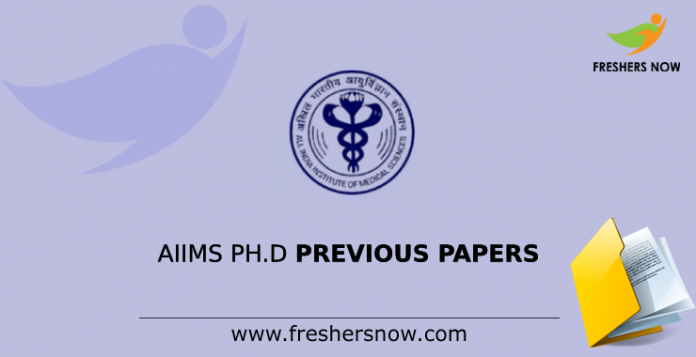
AIIMS Ph.D. Previous Papers PDF | Download Subject Wise AIIMS Ph.D. Entrance Exam Question Papers: Download all required AIIMS Ph.D. Entrance Model Papers which are available on this page. All the candidates who are preparing for the AIIMS Ph.D. National Level Entrance Exam must download all subject wise AIIMS Ph.D. Entrance Test Papers from the end of the page which is provided in the PDF format. And, aspirants must complete AIIMS Ph.D. Question Papers within time by following the schedule they had been prepared for. Go through the below sections to know furthermore details regarding the examination.
Table of Contents
AIIMS Ph.D. Entrance Exam Question Papers – Details
★ You Can Also Check ★
AIIMS Ph.D. Exam Pattern 2020 – Medical/ Dental/ Nursing, Non-Medical Candidates
Candidates who are preparing for the AIIMS Ph.D. Entrance Exam must prepare according to the Exam Pattern given here. Candidates can check out the details of the name of the subject, the number of questions, the number of marks for the Medical/ Dental/ Nursing, Non-Medical Candidates. All the details provided here in the following table. Aspirants must and should download the AIIMS Ph.D. Entrance Model Papers PDF’s from the direct links attached at the end of the page.
Marking Scheme
- 1 Mark will be awarded for each correct answer.
- 1/3rd Mark will be deducted for each wrong answer.
- No Mark will be awarded/ deducted for unanswered questions.
Download AIIMS Ph.D. Entrance Test Papers PDF
All the candidates can start to download the AIIMS Ph.D. Entrance Model Papers PDF’s for the subjects like Research Methodology, BioStatics, English, Ophthalmology, Pediatrics, Psychiatry, Microbiology, Pharmacology, Biotechnology, Physiology, Pathology, Dental Surgery. Aspirants must and should practice all given AIIMS Ph.D. Question Papers to gain complete knowledge on each and every subject. Candidates will get all the questions in the examination from these AIIMS Ph.D. Previous Papers only.
- Research Methodology
- Ophthalmology
- Microbiology
- Pharmacology
- Biotechnology
- Dental Surgery
Keep on visiting our website Freshers Now . Also, you can bookmark by pressing Ctrl + D to get easy access to our web portal. Get your doubts and queries clarified, by asking us in the comment box provided below. Soon, we will respond to you with suitable answers.
Frequently Asked Questions
From where can I get all subject wise AIIMS Ph.D. Entrance Exam Question Papers PDF’s?
All the exam appearing candidates can download all subject wise AIIMS Ph.D. Entrance Exam Question Papers PDF’s either from the official website or from the direct link attached at the end of the page.
How many marks should I score to get qualified in the AIIMS Ph.D. Entrance Exam?
Candidates who secure 50% marks in Stage-I/ II & III Combined (50/100) shall be eligible for admission.
What is the Exam Pattern for the AIIMS Ph.D. Examination?
The AIIMS Ph.D. Stage-I/ II Examination is conducted for 90 Minutes.
Practice Govt Mock Tests
Practice it and bank mock tests, jobs by qualification.
Freshersnow.com is one of the best job sites in India. On this website you can find list of jobs such as IT jobs, government jobs, bank jobs, railway jobs, work from home jobs, part time jobs, online jobs, pharmacist jobs, software jobs etc. Along with employment updates, we also provide online classes for various courses through our android app. Freshersnow.com also offers recruitment board to employers to post their job advertisements for free.
Harvard University Theses, Dissertations, and Prize Papers
The Harvard University Archives ’ collection of theses, dissertations, and prize papers document the wide range of academic research undertaken by Harvard students over the course of the University’s history.
Beyond their value as pieces of original research, these collections document the history of American higher education, chronicling both the growth of Harvard as a major research institution as well as the development of numerous academic fields. They are also an important source of biographical information, offering insight into the academic careers of the authors.

Spanning from the ‘theses and quaestiones’ of the 17th and 18th centuries to the current yearly output of student research, they include both the first Harvard Ph.D. dissertation (by William Byerly, Ph.D . 1873) and the dissertation of the first woman to earn a doctorate from Harvard ( Lorna Myrtle Hodgkinson , Ed.D. 1922).
Other highlights include:
- The collection of Mathematical theses, 1782-1839
- The 1895 Ph.D. dissertation of W.E.B. Du Bois, The suppression of the African slave trade in the United States, 1638-1871
- Ph.D. dissertations of astronomer Cecilia Payne-Gaposchkin (Ph.D. 1925) and physicist John Hasbrouck Van Vleck (Ph.D. 1922)
- Undergraduate honors theses of novelist John Updike (A.B. 1954), filmmaker Terrence Malick (A.B. 1966), and U.S. poet laureate Tracy Smith (A.B. 1994)
- Undergraduate prize papers and dissertations of philosophers Ralph Waldo Emerson (A.B. 1821), George Santayana (Ph.D. 1889), and W.V. Quine (Ph.D. 1932)
- Undergraduate honors theses of U.S. President John F. Kennedy (A.B. 1940) and Chief Justice John Roberts (A.B. 1976)
What does a prize-winning thesis look like?
If you're a Harvard undergraduate writing your own thesis, it can be helpful to review recent prize-winning theses. The Harvard University Archives has made available for digital lending all of the Thomas Hoopes Prize winners from the 2019-2021 academic years.
Accessing These Materials
How to access materials at the Harvard University Archives
How to find and request dissertations, in person or virtually
How to find and request undergraduate honors theses
How to find and request Thomas Temple Hoopes Prize papers
How to find and request Bowdoin Prize papers
- email: Email
- Phone number 617-495-2461
Related Collections
Harvard faculty personal and professional archives, harvard student life collections: arts, sports, politics and social life, access materials at the harvard university archives.

LPUNEST (Ph.D.) Solved Question Papers 2023, 2022, 2021, 2020 PDF Download
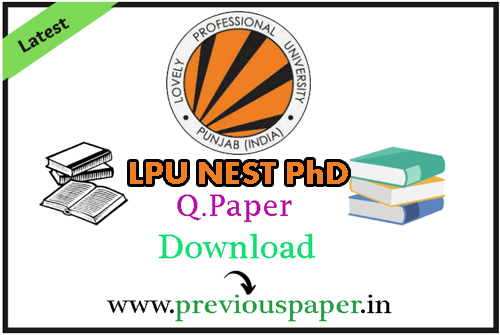
LPU NEST PhD Previous Question Papers – Overview
Lpunest (ph.d.) exam pattern, download lovely professional university national eligibility and scholarship test old question papers pdf, lpunest last 5 years question papers pdf’s.
It is divided into two papers, i.e. Paper-I and Paper-II.
- Paper-I ( Teaching and Research Aptitude )
- Paper-II (Programme wise) shall consist of multiple objective type compulsory questions based on the subject selected by the candidate.
- Paper I of Agriculture disciplines will consist of questions from basic agriculture
- Each question will carry 1 mark. There would be no negative marks for a wrong answer.
- Lovely Professional University National Eligibility and Scholarship Test Question Papers 2023 – Click Here
- Lovely Professional University National Eligibility and Scholarship Test Question Papers 2022 – Click Here
- Lovely Professional University National Eligibility and Scholarship Test Question Papers 2021 – Click Here
- Lovely Professional University National Eligibility and Scholarship Test Question Papers 2020 – Click Here
- Lovely Professional University National Eligibility and Scholarship Test Question Papers 2019 – Click Here
Thank you for visiting our site. For more PhD Entrance Exams question papers visit our Site www.previouspaper.in regularly.
Leave a Comment Cancel Reply
Your email address will not be published. Required fields are marked *
Remember Me
- Forgot your password?
- Forgot your username?
- Create an account
- Math & Stat Office Automation
- Class and Seminar Room Booking
- New Core Lab (Classroom Booking)
- Office Automation Portal
- OARS Port 6060
- OARS Port 4040
- OARS Port 2020
- Departmental Committees
- Annual Reports
- Plan Your Visit
- Faculty Opening
- Post Doc Opening
Intranet | Webmail | Forms | IITK Facility
- Regular Faculty
- Visiting Faculty
- Inspire faculty
- Former Faculty
- Former Heads
- Ph.D. Students
- BS (Stat. & Data Sc.)
- BS-MS (Stat. & Data Sc.)
- Double Major (Stat. & Data Sc.)
- BS (Math. & Sc. Comp.)
- BS-MS (Math. & Sc. Comp.)
- Double Major (Math. & Sc. Comp.)
- BSH (Math & Sc. Comp.)
- BSM (Math & Sc. Comp.)
- M.Sc. Mathematics (2 Year)
- M.Sc. Statistics (2 Year)
- Statistics and Data Science
- Project Guidelines
- BS(SDS) Internship Courses Guidelines
- Analysis, Topology, Geometry
- Algebra, Number Theory and Mathematical Logic
- Numerical Analysis & Scientific Computing, ODE, PDE, Fluid Mechanics
- Probability , Statistics
- Research Areas in Mathematics and Statistics
- Publication
- UG/ PG Admission
- PhD Admission
- Financial Aid
- International Students
- Research scholars day
- Prof. U B Tewari Distinguished Lecture Series
- Conferences
- Student Seminars
The written test/Interview for the PhD admission in Mathematics and Statistics for the academic session 2024-25 -I for shortlisted candidates will be conducted from May 16- May 18, 2024.
Past question papers for qualifying written test for Mathematics candidates
Winter 2019
- December Admission
- Summer May Admission
2020 Summer -2022-Winter (Online Interview)
- Winter December Admission
- Summer July Admission
Past question papers for qualifying written test for Statistics candidates
For any query related to Ph.D. admissions contact
DEPARTMENT OF Mathematics & Statistics
INDIAN INSTITUTE OF TECHNOLOGY KANPUR
Kanpur, UP 208016 | Phone: 0512-259-xxxx | Fax: 0512-259-xxxx
- Suo-Moto Disclosure
Thank you for visiting nature.com. You are using a browser version with limited support for CSS. To obtain the best experience, we recommend you use a more up to date browser (or turn off compatibility mode in Internet Explorer). In the meantime, to ensure continued support, we are displaying the site without styles and JavaScript.
- View all journals
- Explore content
- About the journal
- Publish with us
- Sign up for alerts
Latest science news, discoveries and analysis

The Maldives is racing to create new land. Why are so many people concerned?

Mini-colon and brain 'organoids' shed light on cancer and other diseases

Retractions are part of science, but misconduct isn’t — lessons from a superconductivity lab

Monkeypox virus: dangerous strain gains ability to spread through sex, new data suggest
Dna from ancient graves reveals the culture of a mysterious nomadic people, atomic clock keeps ultra-precise time aboard a rocking naval ship, who redefines airborne transmission: what does that mean for future pandemics, ecologists: don’t lose touch with the joy of fieldwork chris mantegna, european ruling linking climate change to human rights could be a game changer — here’s how charlotte e. blattner.

Lethal AI weapons are here: how can we control them?

Living on Mars would probably suck — here's why

Dozens of genes are linked to post-traumatic stress disorder

What toilets can reveal about COVID, cancer and other health threats
How gliding marsupials got their ‘wings’, plastic pollution: three numbers that support a crackdown, first glowing animals lit up the oceans half a billion years ago, how to freeze a memory: putting worms on ice stops them forgetting.

Any plan to make smoking obsolete is the right step

Will AI accelerate or delay the race to net-zero emissions?

Citizenship privilege harms science
We must protect the global plastics treaty from corporate interference martin wagner, un plastics treaty: don’t let lobbyists drown out researchers, current issue.

Surprise hybrid origins of a butterfly species
Stripped-envelope supernova light curves argue for central engine activity, optical clocks at sea, research analysis.
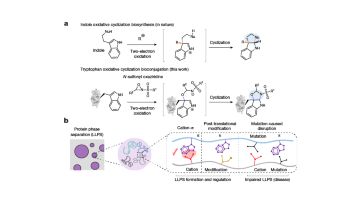
A chemical method for selective labelling of the key amino acid tryptophan
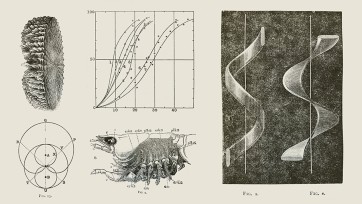
Charles Darwin investigates: the curious case of primrose punishment
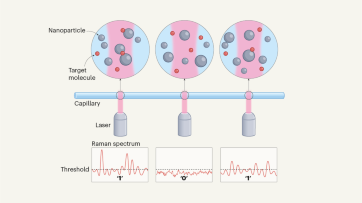
Nanoparticle fix opens up tricky technique to forensic applications
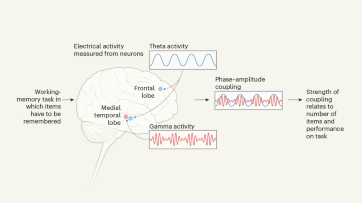
Coupled neural activity controls working memory in humans
Robust optical clocks promise stable timing in a portable package, targeting rna opens therapeutic avenues for timothy syndrome, bioengineered ‘mini-colons’ shed light on cancer progression, ancient dna traces family lines and political shifts in the avar empire.

Breaking ice, and helicopter drops: winning photos of working scientists

Shrouded in secrecy: how science is harmed by the bullying and harassment rumour mill

Londoners see what a scientist looks like up close in 50 photographs
How ground glass might save crops from drought on a caribbean island, deadly diseases and inflatable suits: how i found my niche in virology research, books & culture.

How volcanoes shaped our planet — and why we need to be ready for the next big eruption
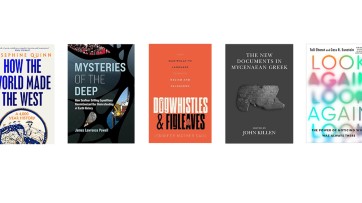
Dogwhistles, drilling and the roots of Western civilization: Books in brief

Cosmic rentals
Las boriqueñas remembers the forgotten puerto rican women who tested the first pill, dad always mows on summer saturday mornings, nature podcast.

Latest videos
Nature briefing.
An essential round-up of science news, opinion and analysis, delivered to your inbox every weekday.
Quick links
- Explore articles by subject
- Guide to authors
- Editorial policies

IMAGES
VIDEO
COMMENTS
Students can go through each of the question paper or they can DOWNLOAD the question paper as PDF files by clicking on the Download link given below the preview. RESEARCH METHODOLOGY. @. Research Methodology & Biostatistics Ph.D. Entrance Test (1/3) @. Research Methodology & Biostatistics Ph.D. Entrance Test (2/3) @.
Here are a feuw preparation tips for a PhD qualification exam: Understand the Exam Format: Learn about the exam format, what is expected, and how the exam is structured, including written and oral parts. Be aware of the specific requirements set by the committee. Develop a Strategic Study Plan: Break your study sessions into smaller parts ...
Graduate entry tests are an important part of the admissions process for some PhD programmes. They help universities and graduate schools confirm that you have the advanced subject knowledge and / or critical thinking skills to tackle a doctorate. Common examples include the Graduate Record Examination (GRE) and Graduate Management Admissions ...
Anna University PHD Entrance Question Papers - Free download as Word Doc (.doc), PDF File (.pdf), Text File (.txt) or read online for free. papers of the anna university
CENTRE FOR DEVELOPMENT STUDIES Prasanth Nagar, Medical College P.O, Ulloor, Thiruvananthapuram-695011, Kerala, India Phone:+91-471- 2774200
It is important to note that the comprehensive PhD examination is not simply a test of your cumulative knowledge of seminar materials. It is, rather, a test of your preparation to work as an independent scholar at the highest level. ... The seminar papers you write should particularly help you develop depth in a few critical areas. 2. Keep ...
The Maharaja Sayajirao University PHD Entrance Papers: The Maharaja Sayajirao University of Baroda. Kerala University PHD Entrance Papers: Kerala University. Sardar Patel University PHD Entrance Papers: Sardar Patel University Gujarat. Karnataka Samskrit University PHD Entrance Papers: Karnataka Samskrit University.
Access PhD Entrance Exam Model Question Paper for Effective Preparation. Access and download sample question papers for PhD-related exams to familiarize yourself with the format, content, and level of difficulty, helping you prepare effectively for your upcoming examinations. We provide entrance exam sample papers for individual subjects as wel ...
The exam consists of three, three-hour papers held on consecutive afternoons. Each paper has six questions, one each on the subjects: Algebra, Algebraic Geometry, Algebraic Topology, Differential Geometry, Real Analysis and Complex Analysis. Each question carries 10 points. In order to pass each subject, students must obtain at least 20 of the ...
Part One of the HALE Doctoral Comprehensive Exam is a written exam designed as an opportunity for students to demonstrate the integration of knowledge of topics, issues, and resources in postsecondary education reflecting successful completion of the HALE Core Curriculum. For more information on the HALE Comprehensive Exam, please visit the HALE Program Handbook, under the Program
outside colleagues while preparing their exam. The student may use course papers, assignments, or drafts as a starting point for the comprehensive exam, but they must submit an original document for the final comprehensive exam, not a paper they wrote prior to the start of the comprehensive examination. The comprehensive exam does not count
Sample Paper for History / Click here. Sample Paper for American Studies / Click here. Sample Paper for Earth Sciences/Click here. Focal Person for MPhil/PhD Admission Test - Earth Sciences focal person MPhil/PhD: Syed Kashif Ali Naqvi. Phone: +92-51-90642158. Email: [email protected]. Sample Paper for Electronics/Click here.
Admission test paper 2014: 2014 : PhD Programme. PhD Programme. ... For PhD Admissions related enquiries: [email protected]; Subscribe to our Mailing list. Follow us on social media HUSS @ IIT DELHI. A place of mind. IITs are mandated to pursue teaching and research in science, technology and arts. IIT Delhi regards knowledge of ...
Pearson administers the PTE Academic exam, which is a computer-based test that takes two hours to complete. The minimum score for entry onto a PhD programme is usually 61, but this varies. You'll be assessed on your listening, reading, writing and speaking skills. The speaking element uses a computer mic rather than a face-to-face interview.
Sample Papers. COMMONWEALTH - HAT (MS/MPHIL) SAMPLE PAPERS: SAMPLE PAPER-HAT-ARTS AND HUMANITIES (MS) . COMMONWEALTH - HAT (PHD) SAMPLE PAPERS: UNDERGRADUATE SCHOLARSHIP for STUDENTS of BALOCHISTAN & FATA PHASE-III (BATCH-II)
To download the NII Ph.D. Entrance Test Previous Papers PDF, scroll to the bottom of this page, and tap on the link placed. There is no specified syllabus and the test will be especially basic and cover topics in Mathematics, Physics, Chemistry, and Biology. There will be 60 questions and each will be awarded 3 marks.
Here are the subject-wise PDFs of the IGNOU PhD Entrance Exam Previous Year Papers for candidates who are preparing for the PhD course from IGNOU. Aspirants can download these PDFs for free given in the table below: IGNOU PhD Entrance Examination Previous Year Paper PDFs. Biochemistry. IGNOU Previous Year Paper Entrance Paper PhD Biochemistry 2017.
PHD 6. The basic condition for transfer of property in unascertained goods is that a) Seller must have produced or purchased the goods b) Goods must be defined by description c) Goods must be ascertained and appropriated d) Buyer must receive a sample of the goods 7. As per the provisions of Section 52 of the Companies Act, 2013, the balance
Click Here (20-02-2024) Marathi_PD-27 58767. Click Here. Click Here. Journalism_PD-04 58780. Click Here. Click Here. Library and Information Science_PD-11 58778. Click Here.
Entrance Examination paper (PHD, m.phil & other programmes) Entrance Exam 2016. Entrance Exam 2017. Entrance Exam 2018. Entrance Exam 2019 . Entrance Examination paper (PHD, m.phil & other programmes) Entrance Exam 2016. Entrance Exam 2017. Entrance Exam 2018. Entrance Exam 2019 ...
AIIMS Ph.D. Exam Pattern 2020 - Medical/ Dental/ Nursing, Non-Medical Candidates. Candidates who are preparing for the AIIMS Ph.D. Entrance Exam must prepare according to the Exam Pattern given here. Candidates can check out the details of the name of the subject, the number of questions, the number of marks for the Medical/ Dental/ Nursing, Non-Medical Candidates.
The Harvard University Archives' collection of theses, dissertations, and prize papers document the wide range of academic research undertaken by Harvard students over the course of the University's history.. Beyond their value as pieces of original research, these collections document the history of American higher education, chronicling both the growth of Harvard as a major research ...
LPUNEST Last 5 Years Question Papers PDF'S. Thank you for visiting our site. For more PhD Entrance Exams question papers visit our Site www.previouspaper.in regularly. It is divided into two papers, i.e. Paper-I and Paper-II. Lovely Professional University, Lovely Professional University National Eligibility and Scholarship.
The written test/Interview for the PhD admission in Mathematics and Statistics for the academic session 2024-25 -I for shortlisted candidates will be conducted from May 16- May 18, 2024. Past question papers for qualifying written test for Mathematics candidates. 2023.
Published on 18/10/2023. Intimation of Date of Examination and Correction in the particulars of the online Application Form of Ph.D. Entrance Test for DU, JNU, BHU and BBAU - 2023 - Reg. Published on 21/09/2023. Extension of Date of Registration in respect of Ph.D. Entrance Test for DU, JNU, BHU and BBAU - 2023. Published on 13/09/2023.
Find breaking science news and analysis from the world's leading research journal.